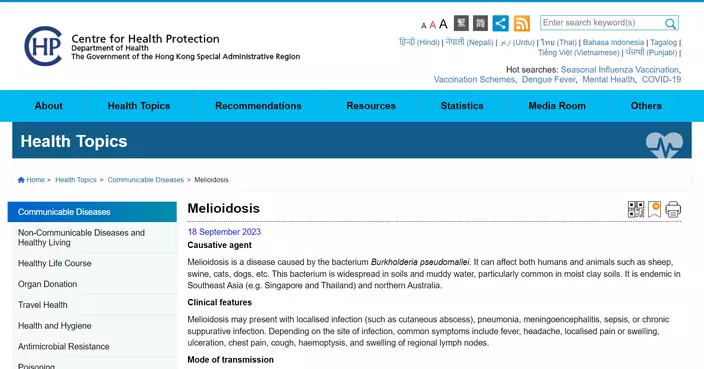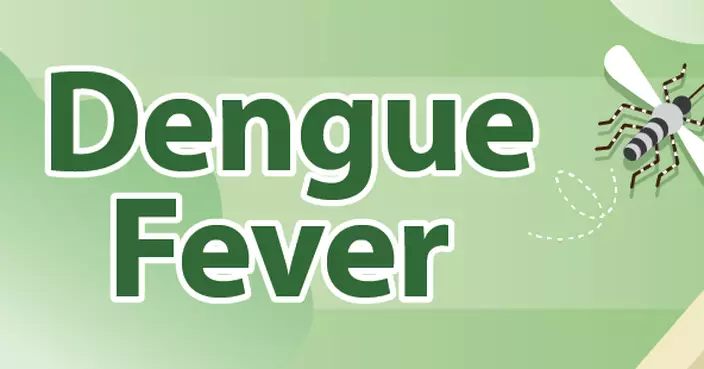Marine fish culture licences for operation in Wong Chuk Kok Hoi and Mirs Bay fish culture zones open for applications
A spokesman for the Agriculture, Fisheries and Conservation Department (AFCD) today (October 17) announced that marine fish culture licences for operation in Wong Chuk Kok Hoi and Mirs Bay fish culture zones are open for application from today.
The spokesman said, "The AFCD has commenced the two new fish culture zones in Wong Chuk Kok Hoi and Mirs Bay for operation. The two are located in open waters with better currents, which facilitate the adoption of modern aquaculture facilities and technology such as steel truss cages or HDPE (high-density polyethylene) gravity-type cages with strong wind and wave resistance, together with automated feeding and real-time monitoring systems. They also allow fishermen to operate aquaculture in an intensification mode. Their establishment promotes and assists fishermen in switching to a modernised and sustainable mode of operation, thus facilitating the sustainable development of the local fisheries industry."
The AFCD accepts applications for marine fish culture licences for operation in the two new fish culture zones from today to December 16. Applicants shall provide a detailed business plan, including an introduction to the proposed sustainable mariculture business, as well as explaining the kind of deep-sea cages to be used and the business itself, which should comply with relevant cage requirements as well as environmental protection and mitigation measures.
The spokesman noted that persons interested in operating in the above new fish culture zones may consider applying for marine fish culture licences through funding from the Sustainable Fisheries Development Fund or through self-financing to develop mariculture businesses.
The AFCD designated Wong Chuk Kok Hoi, Mirs Bay, Outer Tap Mun and Po Toi (Southeast) as four new fish culture zones in December last year, covering a total area equivalent to three times that of the original fish culture zones. Among these, Wong Chuk Kok Hoi and Mirs Bay fish culture zones commenced first. The AFCD will review the operation in these two new fish culture zones to further improve the planning of the two new fish culture zones at Outer Tap Mun and Po Toi (Southeast), and to prepare for commencing these new fish culture zones in due course.
The AFCD will hold a briefing session on October 22 for interested parties to provide information on the application process and licensing requirements of marine fish culture licences for operation in the new fish culture zones. Details of application and the briefing are available on the AFCD website:www.afcd.gov.hk/english/fisheries/fish_aqu/fish_aqu_mfco/newfczmfcl2024.html.
Remarks by SCST and AD of AFCD (Inspection and Quarantine) on incident of animal death at HKZBG at media session
Following is the remarks by the Secretary for Culture, Sports and Tourism, Mr Kevin Yeung; and the Assistant Director of Agriculture, Fisheries and Conservation (Inspection and Quarantine), Dr Thomas Sit, on the incident of animal death at the Hong Kong Zoological and Botanical Gardens (HKZBG) this afternoon (October 18):
Secretary for Culture, Sports and Tourism: Eight monkeys were found dead in the Hong Kong Zoological and Botanical Gardens on October 13, while two others feeling unwell were being isolated, and one of which passed away on October 14.
With concerted efforts from relevant departments, expedited autopsies, pathologic diagnosis and tests, and after discussions among the relevant departments, it is confirmed that the monkeys’ death is due to infection of melioidosis. We are saddened by the passing of the nine monkeys.
Under normal circumstances, melioidosis infection is through contact with contaminated soil and surface waters but not person-to-person or animal-to-person.
The park had soil digging works in early October. Together with the following possibilities, the monkeys might have had contact with the bacteria.
• Staff working at the Mammals Section carried the contaminated soil with the shoes they wore to the cages, or
• Infected monkeys with high counts of bacteria in close contact with other monkeys etc.
In addition, the incubation period for melioidosis in primates is about a week, and this matched with the period after the soil digging works. The nine monkeys died of melioidosis may be related to the soil digging works in proximity.
The LCSD has already taken several precautionary measures after animals were found dead:
1) The Mammals Section of the Gardens (HKZBG) has been closed since October 14.
2) Thorough disinfection and cleaning have been carried out in the animal cages involved.
3) Appropriate protective gear have been provided to staff who work there and staff’s health condition is being closely monitored. At present, their health is normal.
4) Staff concerned are all tested negative for the bacteria.
We will continue monitoring the mammals in the gardens and remind staff to pay attention to their own condition, and to report immediately if any of them feels unwell.
Reporter: Did the monkeys show any symptoms of the disease? Why operators did not realise that prior to their death? Because this is also a disease which can also affect human, is there a need to close the whole facility to prevent visitors from being affected?
Secretary for Culture, Sports and Tourism: Let me tackle the second question first, whether there is a need to close down the whole garden. As I said, we have taken all the cleansing and disinfection measures on the cages. So, with all these measures, we believe that it is now clean and free of the bacteria. We have also cordoned off the whole Mammal Section for the time being, so there will be no sort of contact between normal citizens and the animals. At this stage, I think these measures are sufficient to protect both the citizens as well as the animals in the zoo.
Assistant Director of Agriculture, Fisheries and Conservation (Inspection and Quarantine): As far as I know, according to the vet in charge of the Hong Kong Zoological and Botanical Gardens, he said before that the animals have already lost their appetite. They were a bit of inappetence and a bit quieter than normal. The onset of all the clinical signs only took two days, and then there was a sudden death of animals. The vet has already taken all the measures to treat the monkeys. However, these affected monkeys could not make it. And he had to perform post-mortem and isolate other animals to prevent further spread of the disease.









